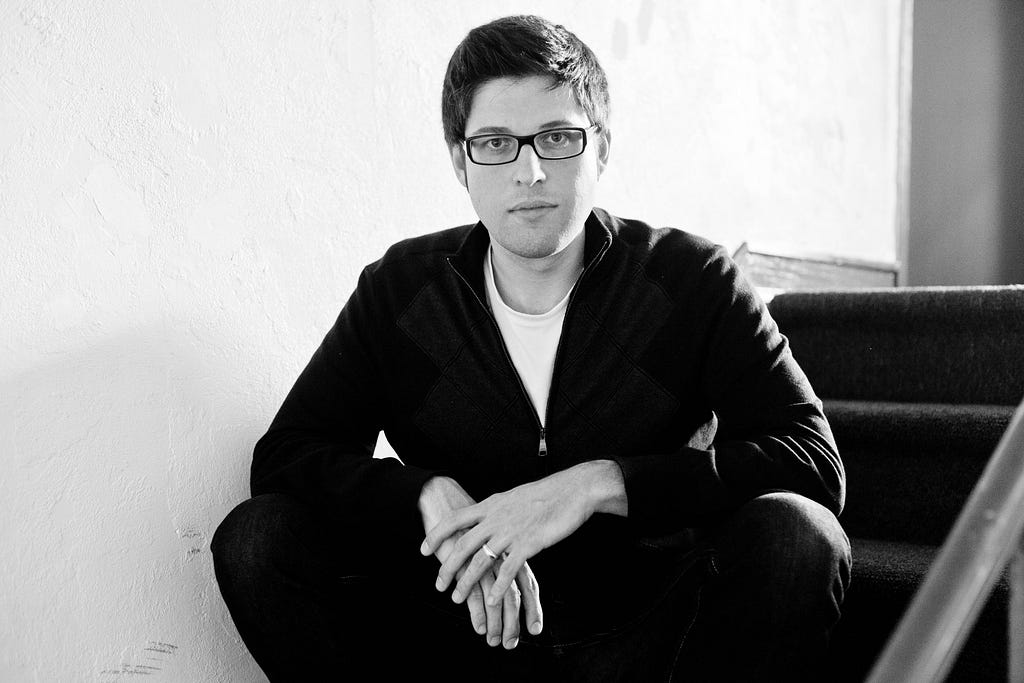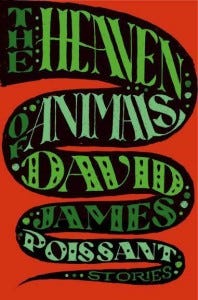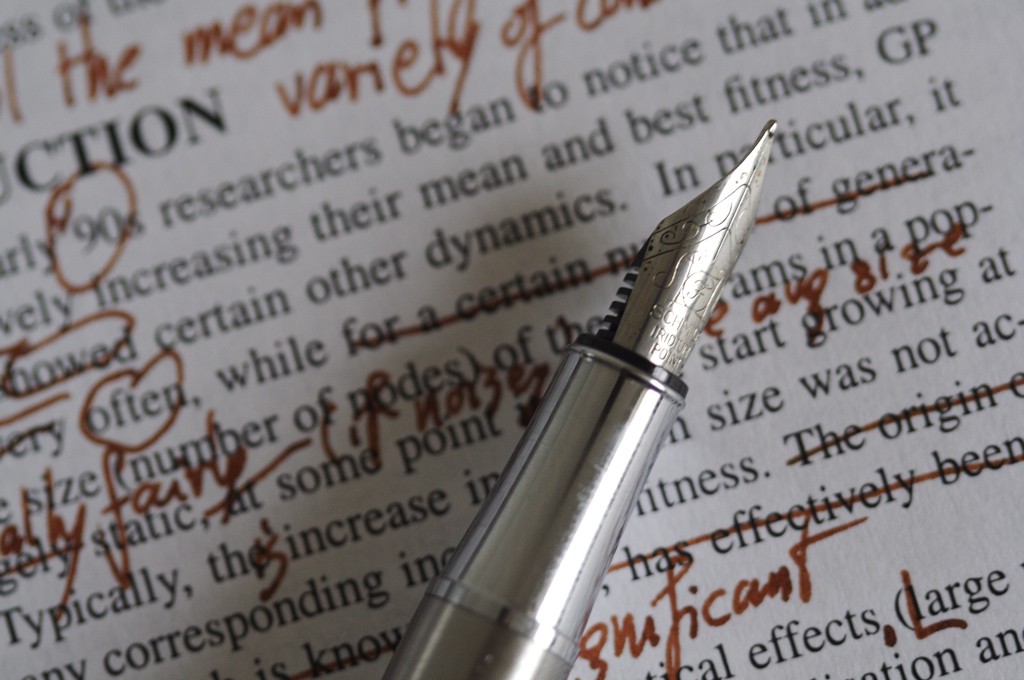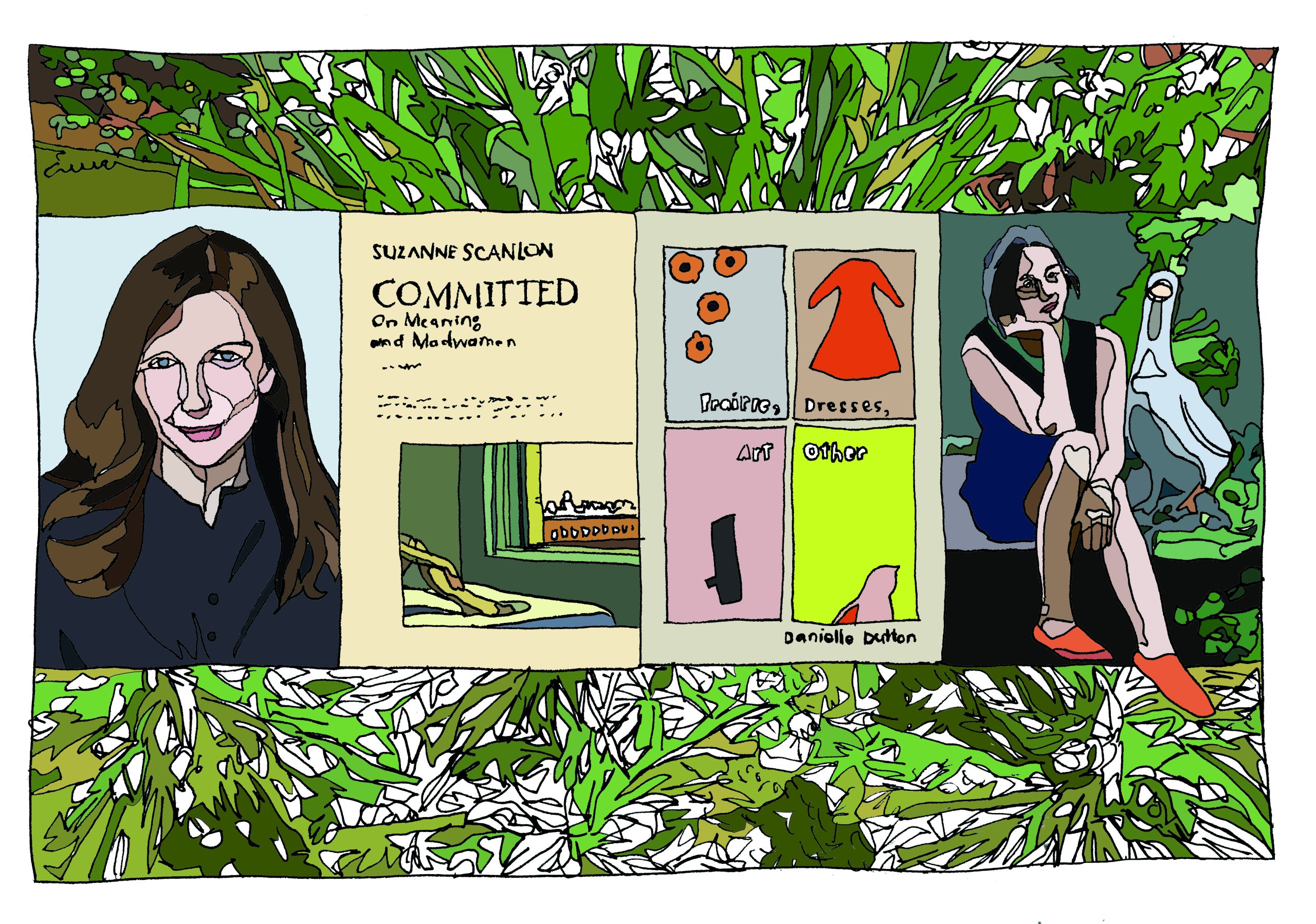interviews
INTERVIEW: David James Poissant, author of The Heaven of Animals

by Jesse Bradley


David James Poissant is the author of the short story collection, The Heaven of Animals. We talked over email about superpowers, the success rate of marriages in literary fiction, and fatherhood.

Jesse Bradley: In an alternate world, you are a horrible father to your children. What ways would your alternate universe self be a horrible father?
David James Poissant: Who says I’m not a horrible father to my children? No, I’m not. I’m not. I hope I’m not. I don’t think I am. Probably I’m pretty good. If I had to make a wager, I’d guess that I rank somewhere in the upper forty or fifty percent. I’m superior to at least three fathers that I know of. I haven’t lost my children yet, if that which constitutes losing is misplacing them for more than an hour or two. And I always crack the windows.
In an alternate universe, the one in which I am a terrible father, I’d give my children everything they want. Because, really, that’s actually one of the hard parts about parenting. Your child wants something, and you want to give that something to her more than you want to do what’s best for her. Sure, have that third slice of cake. Sure, watch another hour of TV. Whatever makes you happy, honey. Then, before you know it, your daughter turns into Veruca Salt (the character from Charlie and the Chocolate Factory, I mean, though, I suppose, given the wrong parenting, there always exists the very real possibility that your daughter could turn into a nineties alternative/grunge band).
JB: What limb or sense would you be willing to lose? What would be the back story behind the loss?
DJP: If I had to trade a sense, I think I’d trade my sense of smell. I’ve heard it said that without a sense of smell, you lose your sense of taste, but I had a teacher in high school who was lifting weights and somehow crushed his nose beneath the barbell. As a result, he lost his sense of smell, but he could still taste things if he made them really, really flavorful or spicy. The side benefit here was that he could ingest extremely spicy foods, the kinds of foods that would obliterate most people’s taste buds. And I think that this would be a very cool power to have. I mean, I’ll never be a bodybuilder. I’ll never be the resident tough guy. But, if I could garner some street cred from being able to eat foods spicier than anyone else, so much street cred that people wouldn’t look at me sideways for using words like garner, then I think that would be pretty bad-ass. As for back story, I’ll happily borrow my teacher’s. Weightlifting accident? Yes, please! Where do I sign up?
JB: Your surviving characters successfully abduct you and try you for all of the characters you killed. What would that trial be like?
DJP: Well, first things first, I live in Florida, so, no matter how the trial goes down, I’m getting off scot-free. (Hey, fun fact: According to Wikipedia, scot-free derives from the Old English scotfreo, meaning “exempt from royal tax.”) But, yeah, given my situation, I think the only way I’m found guilty is if the jury foreperson is my character Joy from “Refund.” In that case, I’m going down. You just do not mess with her.
JB: Out of how many marriages fail in literary fiction? Please cite evidence of whatever percentage you indicate.
DJP: All of them. All literary fiction marriages fail.
No, not really. There was that one, that one time…maybe it was in a John Updike story…no, definitely not an Updike story. No, I’m thinking there was this one really strong marriage in this one story by…hmmm….no…wait…give me a minute…I’ll think of one…um, next question?
JB: What superpower would you like your next child to have? Would you hide the child’s superpower from the world?
DJP: The other day — and this is true — my family was eating dinner, and we got to talking about superheroes. My wife, Marla, and I have twin daughters, age four (and four). One of my daughters, Isabelle, asked if she could be a superhero and if I would be her sidekick.
“Of course,” I said. “What’s your superpower?”
“I can fly,” Izzy said.
“That’s reasonable,” I said. “And what’s my superpower?”
She gave this some thought. “You’re just a really nice guy,” she said.
“What about me?” my other daughter, Ellie, asked. “What’s my superpower?”
Izzy thought about this for a while, then said, “Ellie, you can make food really, really flat.”
Apparently, my wife doesn’t get a power, so it was decided she’d be our Alfred. You know, the mere mortal who keeps the secret hideout fridge stocked with protein shakes and makes sure the electric bill gets paid on time?
As far as superhero teams go, I see my family’s as fairly ragtag. Given our powers — flight, food-flattening, and hyperbolic niceness — I’m not sure just what kind of crime or super villain we’re equipped to fight. In my case, I suppose I’ll be killing bad guys with kindness, literally.
But, to answer your original question, were Marla and I to have another child, I’d vote for a baby with the power to sleep through the night and that could also feed and change itself. Because that’s probably the only way we’re having another child.
JB: What is a dark secret you wish you had? How would having that dark secret influence your life?
DJP: For a long time, I’ve had this idea for a story about an accidental plagiarist. It would be about a guy who writes stories, great stories, thebest stories, only to discover that each story has, in fact, already been written word-for-word by somebody else. I’ve always wondered, if I had the choice, would I want that power? Because, how amazing would it be to compose a story like ZZ Packer’s “Brownies” or Amy Hempel’s “The Harvest,” to have the very real experience of thinking up those stories and knowing how it felt to write them from scratch? But, then, how devastating to discover that someone had beaten you to the punch? To pen a line like “Love slays fear.” Yes. Yes! But, then, to learn that Barry Hannah been there, done that (“Escape to Newark,” Airships). No. No! Still, if you’d written the story, really written it on your own with no knowledge of the forerunner, wouldn’t the masterpiece, in every way — in every way but the fact that it had already been written — still be yours?
The best story you can write is the kind of story that’s better than anything you can write, that’s better than you. If you’re lucky enough to land one or two of these in a lifetime, I can’t help imagining you’d feel just that way, like you were keeping a deep, dark secret, like you hadn’t written those stories at all.
JB: How much of your life do you incorporate into your fiction? Do you warn people that they might show up as characters in an upcoming story?
DJP: My work is almost never autobiographical. What is true to my life is place, or at least my perception of place. The settings in my stories are pulled whole-cloth from my experiences of them. I can’t write about a place I haven’t first been and internalized deeply, which is why I’m unlikely ever to write a historical novel. If I can’t go there now, there’s no amount of research I’d trust to get the place right.
I’ve spent a lot of time in Florida, Georgia, and Tucson, so those pop up in the collection quite a bit. And there really is a Big Bone Lick State Park (though watch your search terms if you Google that one). The novel I’m currently writing is set in North Carolina on a lake that’s very much like the lake my family and I visited most summers during my childhood. For whatever reason, I find that dropping fictional characters into settings that I know well helps me to more easily fictionalize their conversations and behaviors. I suppose it’s the inverse of Marianne Moore’s “imaginary gardens with real toads in them.” In my stories, the gardens are real; it’s the toads that are make-believe.
JB: Where do you see your fiction in five years?
DJP: I see him in a bar. He’s put on a little weight. The gray is coming in near his temples, but he looks good for his age. We shake hands. He buys me a drink. We catch up on old times. I tell him the one about the nun, the rabbi, and the brontosaurus who walk into a bar, and he does the joke with the interrupting cow, except that he messes it up, like Ryan Gosling at the end of Half Nelson. Then we both talk about how much we like the latest story by George Saunders. Probably, after that, I put him in a cab and give the driver his address. My poor fiction. Nice guy, but he never could hold his liquor.









